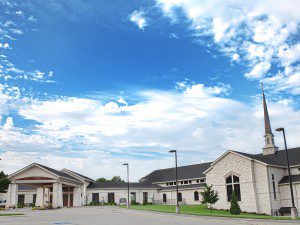It’s not every day that you see a story about one boy being bullied without headlines accompanying headlines announcing a vicious death or a closeted homosexuality. Yesterday, though, the New York Times published just such a story. Dan Barry wrote the piece, entitled “A Boy the Bullies Love to Beat Up, Repeatedly”, as a sober, quiet reflection on bullying. Though there is no grisly headline attached to the story (thankfully!), the piece is worth reading and thinking about.
Barry notes, succinctly, that fifteen-year-old Billy Wolfe of Fayetteville, Arkansas gets bullied on a regular basis. This is the kind of piece that Barry regularly writes for the NYT: pieces that go beyond headlines and burrow into the experiences of everyday people. A steady diet of such articles would grow tiresome, probably, but this piece raised a number of issues in my own mind about the link between schools and bullying. Billy is bullied on a regular basis by a number of boys who randomly approach him and punch him. There seems to be little rationale for this behavior, though one could guess that Billy is an outsider in his school–he might be bookish, or he might be slightly effeminate, or he might be a little socially awkward, or he just might not be strong, debonair, or athletic. As one who went to public school, I can reason that any of these factors could be directly contributing to Billy’s situation. Kids–despite appearances to the contrary–can be relentlessly cruel. Public school can be quite difficult, then, because it often involves a large number of kids, some of whom are quite cruel, and little supervision by wise, discerning adults. For the child who is, for whatever reason, on the fringe, public (or private) school can represent a day-in, day-out exercise in sustained fear and unalleviated despair.
Perhaps many of us have forgotten this truth. We’ve long ago left behind school experiences that were difficult. Perhaps we are internally ashamed of the fact that we were once bullied. In fleeting moments of remembrance, we feel as though we caused such treatment. Maybe we remember how gawky we were, or how awkward, or how small, and we feel that we deserved to be bullied. Let’s square with bullying, and with the pre-teen and teenage years: they can be quite hard. We’re not giving into silly psychobabble or becoming weak if we look our past in the face and see the pain and hurt that lies there. I was always very short, and I remember being on picked on continually for it. I told my parents about some of it, and occasionally talked about it with friends, but there was alot of evil that I could do little about it and simply bore on my own. Some would say that this reality shaped my character and made me tougher, and that’s probably true. But my experience in public school among a bunch of nasty kids also left me with some scars. I’m sure others experienced the same, though it’s unlikely they’ll talk much about it.
In reflecting on Billy Wolfe, I’m reminded of a few recent trips to local coffee shops. While reading in the afternoon, I’ve observed schoolchildren, fresh out of school for the day, play a number of pranks on one another. I’ve also seen packs of children hanging out with no adult supervision. In all of these instances, I’ve thought to myself that it is no good thing for packs of unsaved children to hang out together. There is little good that results from such grouping. Unsaved children, after all, do not tend to focus on goodness, truth, and beauty, especially in a Christian sense. No, they tend to focus on what is evil, outlawed, unkind, “cool”, and funny, despite what others may think. The peer-based culture of American children that stems from the advent of public education in the twentieth century can hardly be viewed as a positive development for our society. I am not offering a direct application regarding the viability of public school for children of Christians here. Some kids thrive in such situations–they’re well liked, they have a good witness, and all goes rather smoothly. With that said, though, it only makes sense that public or private school, unless closely monitored by wise, kind, just adults, threatens to present schoolchildren (particularly those who are not well-liked for whatever reason) with situations marked by cruelness and, well, evil. As Christians, we’ve got to think carefully before we plunge our kids into such worlds.
It is not easy to admit that one was bullied. It is also not easy to forget being bullied. I remember getting punched by bullies in school, and I remember one of my friends being shoved into a locker by a bully. He cut his hand so badly that he had to go to the emergency room. There was a great deal more that I can remember, too. I remember being taunted by older boys about a poor basketball game I played. Without any provocation, these boys repeatedly made fun of me for making a few turnovers. Twelve years later, I can easily recall my hot cheeks, my attempt not to cry in front of other boys, my inability to say anything meaningful to these boys.
These recollections show me that I, along with all Christian parents, need to think carefully about schooling. We cannot shield our children from the evil of this world; indeed, we must teach children to live in the midst of it, and beyond this, to be light in this place. With that said, though, we should remember children like Billy Wolfe. There were many children I can recall who were chewed up by public school and the cruel kids who populated it. We should remember, perhaps, our own histories, and run our minds over our own scars. As parents, we should be prepared to stand up with great force and courage for our children. I’m thankful that my own parents were always there for me. We’ve got to teach our children to defend themselves, even as we teach them to, when possible, suffer reproach for the gospel. Most of all, we need simply to think–to think about our children’s souls and the way they will be shaped by the childhood years in which we shepherd them. Education is important, after all, but at what price does it come?











